 Yes, parking garages in Florida can be held liable if someone is injured because of dangerous conditions like pot holes, slippery floors, or poor lighting.
Yes, parking garages in Florida can be held liable if someone is injured because of dangerous conditions like pot holes, slippery floors, or poor lighting.
Parking garage owners have a legal duty to maintain a safe environment for their visitors and customers.
If a manager is negligent and fails to make repairs or security improvements and it leads to someone getting hurt, the owner of the property may be sued for compensation through a premises liability claim.
If you were injured in a parking garage, contact a premises liability lawyer to discuss your legal options.
Florida Parking Garage Safety Requirements
Parking garages in Florida are required to keep their facilities and the surrounding area from becoming dangerous. That includes curbs, sidewalks, and walkways in and around the garage.
Under Florida’s premise liability laws, anyone who owns or controls a property has a legal duty to maintain the premises in a reasonably safe condition and either repair hazards or warn visitors about the danger.
As businesses that invite the general public onto their property for use of their paid services, parking garages are considered to owe the highest duty of care to their customers and visitors.
That means the owners and managers must regularly inspect the garage for any potential dangers and fix them as soon as possible to avoid a visitor getting hurt.
Common Parking Garage Hazards
Some common hazardous conditions that could make a parking garage owner liable for injuries include:
- Slippery Floors
- Uncleaned oil/fluid leaks or spills on garage floors
- Lack of warning signs for slippery areas
- Uneven surfaces, cracks, potholes
- Poor lighting making it difficult to see tripping hazards
- Lack of handrails on staircases
- Poor Security
- Inadequate security measures like broken gates/locks
- Lack of security cameras or patrols in isolated areas
- Poor lighting creating blind spots for criminal activity
- Structural Damage
- Crumbling concrete from lack of maintenance
- Malfunctioning elevators or escalators
- Exposed electrical wiring
- Lack of wheel stop barriers to prevent vehicles from going over edges
- Dangerous Driving Lanes
- Failure to implement traffic control signals, signs, and patterns
- Lack of speed limit enforcement in garages
- Narrow driving aisles without proper clearance
- Obstructed sightlines at ramps, turns, and exits
If property owners, managers, or staff are aware of these types of hazards and fail to repair them or provide adequate warnings, they could be exposing garage users to an unreasonable risk of harm.
Any injuries that occur from hazards like these could potentially lead to a premises liability claim against the person or business that operates the garage.
How to Prove Parking Garage Liability
To prove that a parking garage is liable for your injuries, you must be able to prove:
- The parking garage owner owed a duty of care
- That duty was breached by failing to maintain reasonable safety standards
- The breach of duty caused the hazardous condition
- The hazardous condition directly caused the victim’s injuries
Evidence that could support a premises liability case includes surveillance footage, maintenance records, photographs, witness testimony, expert analysis, and documentation of the injuries and accident scene.
It’s important that people who are injured in parking garages report the incident and avoid giving statements or accepting early settlement offers from the garage’s insurance company.
Speak to an experienced Florida premises liability lawyer to protect your rights and ensure you receive fair compensation for medical bills, lost wages, pain and suffering, and other damages related to the parking garage’s negligence.














